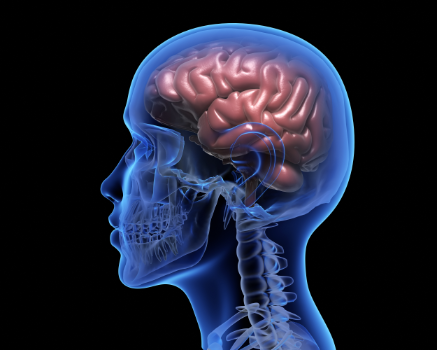BMS Cognitive Assessment Test: Safeguarding Memory Health Early
Scientifically Validated | Simple Blood Test | Report Ready in 5–10 Working Days
The Importance of Cognitive Health
With the aging population, cognitive disorders have gradually become a major global health concern. Alzheimer’s disease, the most common type, often shows no obvious symptoms in the early stages, leading to delayed detection in many individuals. According to the World Health Organization, about 9% of cognitive disorders worldwide are early-onset, and after the age of 65, the prevalence doubles every five years. Through the BMS Cognitive Assessment Test, potential risks can be identified as early as the Mild Cognitive Impairment (MCI) stage, allowing proactive measures to be taken to safeguard health and maintain greater control.

Testing Technology and Core Principles
The core of the BMS Cognitive Assessment Test lies in detecting the p-Tau217 protein in the blood, a biomarker closely associated with Alzheimer’s disease pathology. When neurons become abnormal, Tau proteins undergo degeneration and form deposits, ultimately impairing brain function.
This test utilizes Simoa (Single Molecule Array) technology, which can precisely detect extremely low concentrations of p-Tau217. It has been recognized by the U.S. FDA as a breakthrough medical device. Studies have shown that the results are highly consistent with brain PET scans and cerebrospinal fluid tests.
Accuracy and Reliability
Compared with traditional imaging tests, the BMS Cognitive Assessment Test requires only a simple blood draw while providing highly reliable data. Clinical studies show a sensitivity of approximately 98.2% and a specificity of around 98.6%, accurately reflecting risk status at different stages. The test is non-invasive, and reports can be issued within 5–10 working days, making the process both quick and convenient.
Testing Procedure
- Step 1: Schedule your test online or by phone
- Step 2: Visit a BMS blood collection center for a blood draw
- Step 3: Samples are sent to a Hong Kong–accredited laboratory for analysis
- Step 4: Receive your report within 5–10 working days


Who Should Consider Testing

- Individuals aged 40 or above
- Those with a family history of Alzheimer’s disease
- Carriers of the APOE4 gene
- Patients with high-risk chronic conditions (e.g., hypertension, high cholesterol, diabetes)
- Individuals who have experienced a stroke or brain injury
- Those under long-term stress or with tendencies toward depression
APOE Genetic Testing
The APOE gene is significantly associated with Alzheimer’s disease. Carriers of the APOE4 gene have a 2–26 times higher risk than the general population and may even show symptoms earlier, between ages 55–65. The BMS Cognitive Assessment’s APOE genetic test helps individuals understand their inherited risk and serves as an important reference for health management. It is important to note that genetic test results indicate potential risk only and do not constitute a diagnosis, as disease onset is still influenced by environmental and lifestyle factors.
Health Management and Lifestyle Recommendations
Regardless of test results, maintaining healthy lifestyle habits is always fundamental to supporting brain health:
Healthy Diet: Consume antioxidants and Omega-3 fatty acids to support brain function
Quality Sleep: Promote memory consolidation
Regular Exercise: Enhance blood circulation and metabolism
Cognitive Training: Engage in reading and brain-stimulating games to keep the mind active
Combined with test results, these measures provide a more comprehensive approach to maintaining cognitive health.

Frequently Asked Questions (FAQ)
Is the test equivalent to a diagnosis?
The test results only reflect risk status and cannot be used as a basis for clinical diagnosis.How often should I get tested?
It is recommended to follow regular monitoring based on age and risk factors.Does a genetic result mean I will definitely develop the disease?
Not necessarily. Disease onset is influenced by multiple factors, including genetics, environment, and lifestyle.How long does it take to receive the report?
Reports are generally available within 5–10 working days.
Medical Disclaimer:
The information provided in this article is for educational and reference purposes only and does not constitute medical advice or be used as a substitute for professional medical diagnosis, treatment, or advice. ALWAYS CONSULT ANY QUESTIONS YOU MAY HAVE ABOUT YOUR MEDICAL CONDITION OR MEDICAL PROBLEM THAT YOU HAVE ALWAYS CONSULT YOUR PHYSICIAN OR OTHER QUALIFIED HEALTH PROFESSIONAL. The content of this article is not intended to recommend any specific test, treatment, or medication and should not be construed as such. If you develop symptoms or require medical assistance, please contact a healthcare professional promptly.
